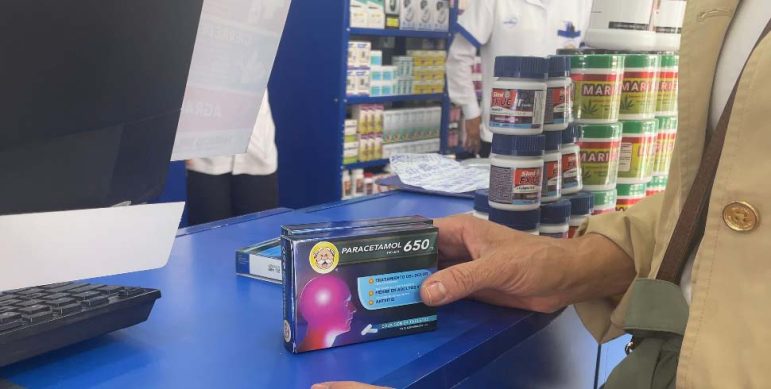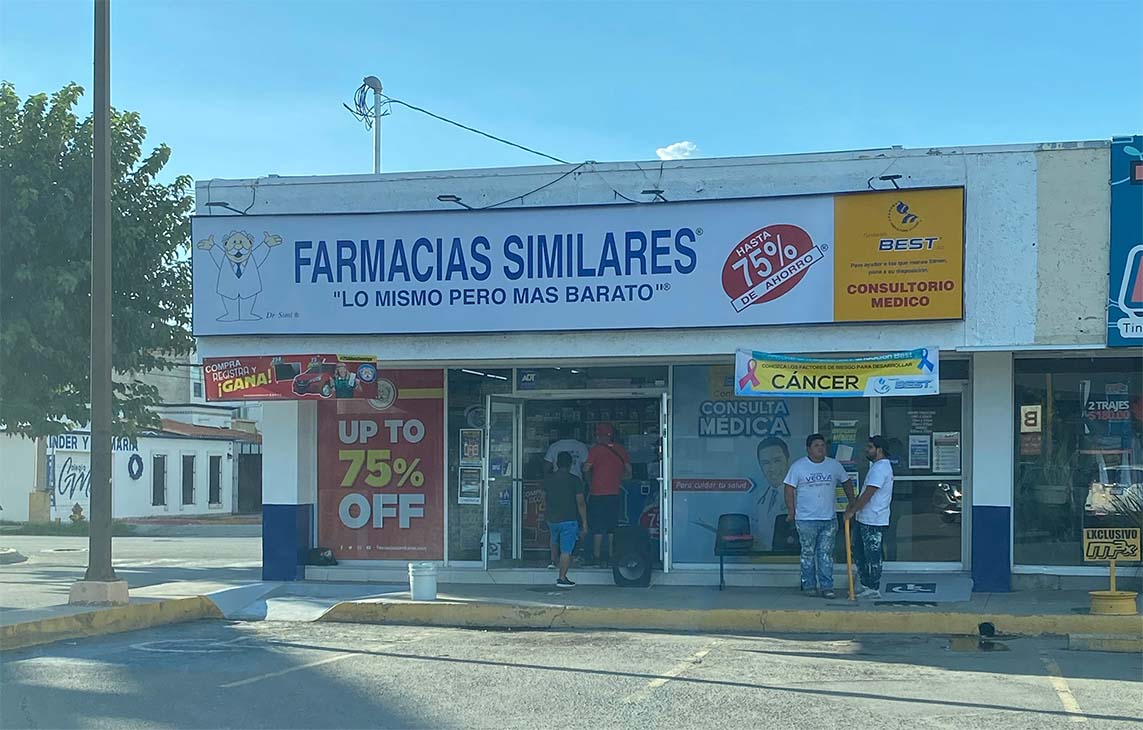Esther Huerta has lived with a kidney transplant for 17 years and has to take medication for the rest of her life to ensure her body does not reject the organ.
Huerta says the medicine is too costly to buy in the U.S. so she crosses the border to Ciudad Juarez every month.
Huerta takes Sirulimus and Mycophenolic Acid to prevent rejection of her kidney transplant. Her medicine costs approximately $600 in Juarez, in comparison to almost $1,000 in the United States.
Pharmacy tourism is the act of going to a different country to obtain medication due to lack of insurance, lower cost, and easier access.
She says that she’s struggled from time to time to cross over the medicine into the U.S. She says that one time they took it away from her at the border checkpoint while crossing the international bridge, even though she had a medicine prescription.
According to U.S. Customs Border Protection prescription medications should be in their original containers with the doctor’s prescription printed on the container. Personal quantities is limited to a 90-day supply.
As a precaution, Huerta takes her prescription and a note from her doctor that says she has a kidney transplant and must take the medication.
Huerta says that she gets most of her antibiotics from Ciudad Juarez.
“I trust more in the medicine, all the medicine, that Mexico gives, even though sometimes it is stronger.” Huerta says that she feels the medicine is stronger in comparison to the U.S. counterpart.

Paracetamol at Farmacias Similares counter on Avenida Benito Juarez, Ciudad Juarez, Mexico on October 12, 2022.
A study conducted in 2009 by Dr. Jose Rivera, the founding dean of the School of Pharmacy at the University of Texas at El Paso, found that about one-third of El Pasoans reported crossing the border to Ciudad Juarez, Mexico to purchase medication.
Clusters of pharmacies are located on Avenida Benito Juarez, Ciudad Juarez, Mexico within walking distance from the Paso Del Norte International bridge.
These pharmacies sell antibiotics, pain, psychiatric and chronic disease medicine.
Huerta gets most of her medication from Farmacias Similares, a Mexico-based pharmacy chain that sells discount and generic medication, since it is close to the border and has easier access.
A pharmacy clerk says that she has sold up to $200 worth of medication to one individual.
“You’d be surprised by how many prescriptions enter for ampicillin and amoxicillin, which are the most noble antibiotics. You see the prescriptions and see that they’re treatments for 10, 20, 30 days and they take so many boxes.” The clerk says that they see people from Denver, Phoenix, and other cities from the U.S.
Rivera says that although many prescription medications have their equal counterpart in Mexico, pharmacy tourism still need to be educated in what the medicine is and what it contains when purchasing medication.
Rivera says the most common medication people cross the border to buy are antibiotics, but chronic disease drugs and controlled substances are also brought over from Mexico.
There are multiple limitations to buying medicine in Mexico, he says.
“They think that when they go to a pharmacy they are talking to a pharmacist, most of the time they are talking to a self-trained clerk.” He says that there are limitations to how those individuals can help a person.
Rivera says that consumers of medication in Ciudad Juarez need to be aware of what they are purchasing. He says that many drugs in Mexico are combined with different substances such as steroids or controlled substances.
“I’m not saying that every medicine in Mexico is problematic, some of them are the same, you just need to be aware,” he says.
A preprint published by the National Library of Medicine in January 2023, cites a not-yet peer-reviewed study that found several instances where pills sold as oxycodone, Xanax, and Adderall by pharmacies in Northern Mexico cities contained fentanyl, heroin and methamphetamine.


